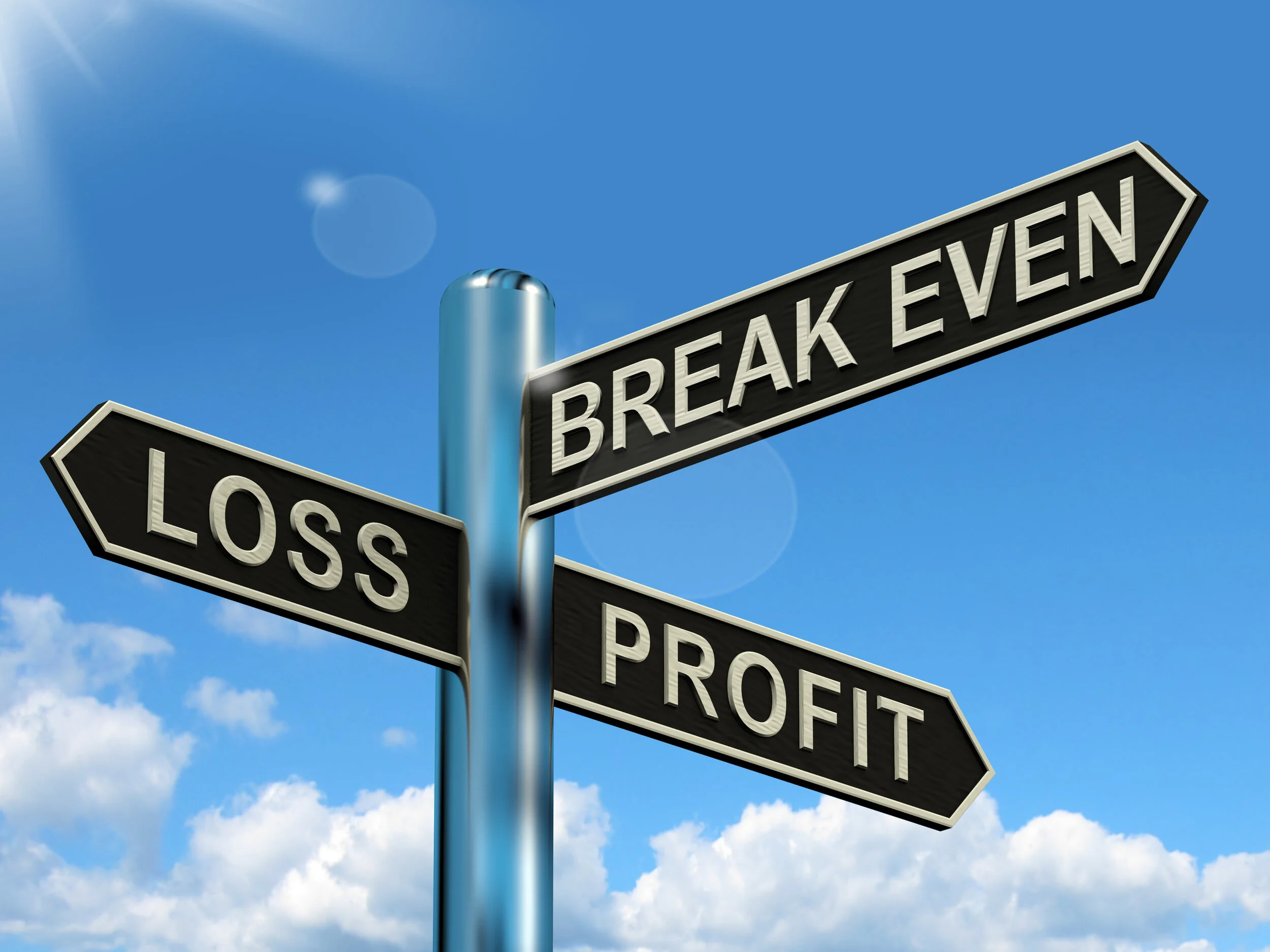Let’s Start a Home-Based DJ Business! Part 4: Your Business Plan—And Why You Need One
Your business plan is, essentially, your roadmap to running a business. I won’t say it’s a roadmap to success—success is ultimately determined on how well your business plan is executed and how well you roll with the punches of being a small business owner—but it’s a great way to plot out your course. A business plan is your best bet, and it’s why we’re dedicating this whole blog chapter to it.
Last week in “Part 3: Why Is a DJ Business Such a Good Idea?”, you learned about the pros and the cons of running a successfully DJ business. In this episode, you’ll learn about something that every good business should have—a business plan. A business plan, isn’t the end-all and be-all of success. We’ll talk more about that, too. In fact, a lot of business owners and consultants think that business plans aren’t necessary at all (and that the concept is outdated in today’s economy). I beg to differ.
Although it’s important to stay dynamic in your business’s direction, I know—you probably want to dig more into the gritty details of being the best DJ you can be. However, if you’re serious about this (and having read this far shows that you are), you need to learn how to write a good, detailed business plan.
What a Business Plan Is—And Isn’t
Let’s get started on discussing your business plan, why you need it, and how you’ll put it together. A business plan is, quite simply:
a way to define your business
an explanation of how you’ll handle money (including funding, credit, and profits)
a set of defined goals with an approximate time frame
A business plan is your best bet for starting a business in an organized, cohesive, and purpose-driven manner. However, it isn’t an instant ticket to big-dollar financing and credit extensions. Some businesses are, surprisingly, able to draw up a single business plan and stick to it without faltering. That works in some businesses—but not all. You’re thinking of starting a business in one of the most dramatically changing industries—the entertainment business—and one that will always require you to do some modification to your plan.
Most businesses will find that modifying their business plan as the days, weeks, months, and years go by is the best (and only) way to go, because businesses in today’s economies have to be very dynamic to stay afloat. Yours will likely be no different.
Before you jump in to grab your piece of the DJ market, there’s a lot of work you have to do to officially set up your business. The first task is defining what your business is, what your business does, and how you’re going to do everything
There’s also a lot on your plate as a new small business owner—and as you get started, you’ll probably notice that there’s no tried-and-true formula for a business’s success. We’ll find your business and personal strengths, we’ll find your weaknesses, and we’ll figure out how to best balance the needs of a growing business with your personal necessities.
From there, we’ll write a business plan—an important document that you’ll reference (and change) often—then get to the more fun stuff!
What Makes a Good Business Plan?
Writing a business plan is an eye-opening experience. It’s one that’s surely caused a lot of bellyaching by potential new business owners, but it’s one of the best ways to be prepared. After you’ve decided what your business is going to do and how you’re going to do it, getting those elements in writing is important.
Business plans—especially the strict, no-deviation business plans of the past—aren’t exactly necessary in today’s economy, and some lenders won’t even request them. But many will—and although businesspeople can debate the importance of a business plan until they’re blue in the face, I—and many other small business operators—would be lost without one. Click here to check out the business plan self assessment. This is an experiment to help you get started in the right direction when writing a business plan.
First, you should be able to describe accurately what your business does—and in this case, we know that you’re going to be a DJ business that provides entertainment at events of all shapes, sizes, and budgets. Easy enough, right? Actually, you’ll need to be more detailed and be prepared to discuss these aspects in remarkable detail with individuals who aren’t familiar with your industry.
Remember that a business plan isn’t generally used as a peer-to-peer marketing tool. This document is most important to you for guidance, but it’s equally important to others, mainly your partners, your investors, and your lenders. The people reading your business plan are going to be interested in seeing that you’re well-spoken and that you avoid hyping your business beyond what the cold, hard facts show.
Next, you need to talk money. Business plans are generally most useful when you are obtaining credit and investments from others, and those people are always looking for the most accurate and in-depth picture of your financial situation. They want to know how your financial planning is going, and they want to know how prepared you are for the time period before you start making a profit.
Being able to tell your potential investors exactly what you’ll do to make money with your DJ business, how you’ll spend that money, and how you’ll invest that money back into your business is important. They’re going to want to know how your business will be paying back any monies paid out to you and if you’ll be able to afford the interest and payments. You won’t be expected to show them easy riches—we know that your business will be unlikely to make you a millionaire in the next couple of years—but lenders do need to see that you’ve got a positive outlook.
Even if you anticipate just barely meeting your break-even point or posting a small loss after expenses, readers of your business plan deserve your honesty. Now, let’s look at constructing that business plan yourself.
The Executive Summary
The first part of any successful business plan is the executive summary, which describes you and your business. This isn’t a place to hype the fact that you’re the latest and greatest DJ in all the land—and it’s not a place to brag about things that aren’t directly related to the operation of your business. To a lender or investor, a good business doesn’t need self-generated hype. All you need is a good, firm grip on what your business will do. It doesn’t matter how great you think your business’s plans may be. What matters most to an investor is that the business stands out on its own, fills a void in a profitable market, and can generate income by tapping into as many markets as possible.
In your executive summary, you should start by introducing your business as well as your business plan itself. Let the reader know what a DJ business does—plainly, without use of technical jargon and hip, industry lingo. This isn’t a place to talk about “hitting the decks” and making “fat beats”—you’re not selling to an industry peer. I know that explaining something to a nontechnical, nonmusical individual can be a daunting task for some—myself included—because it’s always safe to fall back into what’s familiar and comfortable for you. But being able to explain your business calmly and thoroughly is the first step in writing a good executive summary. In describing your business, you should explain who your customers are, where they’re located, and how you’ll reach them. It’s equally important to introduce your business plan’s goal. If you’re actively shopping for funding, credit lines, endorsements, or sponsorships, let your readers know. They should be able to find out, within the first few paragraphs of your executive summary, who you are and why you’re talking to them.
At this point, you should also explain where your business will do things differently to set it apart from the competition. You should have, by this point, researched your competition to find out what you’re up against. If twenty other DJs in town are doing exactly what you want to do, that’s probably a good indication that you need to hone in on a specific, specialized market when it comes to advertising.
Executive Summary Checklist
Need some help brainstorming for your business plan’s executive summary? Here’s a quick checklist of things you’ll need to remember when constructing your opening paragraphs:
❏ Business description: What’s your business going to be called?
❏ Business purpose: What will your business offer to the customer?
❏ Your competition: How is your business different than the competition?
❏ Frequency: How many events do you plan to book in any given period?
❏ Profit: How much money, on average, do you expect to make per event?
❏ The DJ industry: What’s the outlook for your industry in your area?
❏ Your potential partners: Who will be reading your business plan?
Business Summary and Description—The Finer Details
After you’ve described the basics of who you are, what your business is, and how you’ll pull it off, it’s time to explain your business in greater detail. This isn’t where you detail the process of being a DJ. This is where you describe how your business will be structured—first in summary and then in fine detail. You need to be able to discuss whether the business is going to be a sole proprietorship, a partnership, or a corporation (more on this later). You also need to describe your place of business, how you’re prepared to be a running DJ operation, and how you’ll pay for the costs related to opening the doors. Remember that you’re going after potential partners and investors here—you’ll need to show them that your business has a spine before they jump onboard.
A good business description generally covers the first year of your operations. You’ll need to let your readers know how much money you’re investing to get off the ground and how much you’ll need to funnel into the business to keep it operating through its first year—generally the hardest time for small businesses. And readers want to hear about a lot before you even open the doors: They want to know, in detail, why you need their investment and what of your own you’ve put into it. They want details on the logistics of operating your business, what kind of space you’ll operate from, and how you’ll handle legal and financial conflict.
Being able to describe the legal standing of your business is an important element—and one you’ll need to sort out right away. Most self-employed people are considered sole proprietors, but many choose to form corporations, either traditional or limited liability. If two people are working together, you’ll be considered a partnership unless you choose to incorporate in some way.
Now that your business is described in generalities, it’s time to dig deeper into the operations of your business. Here comes the easiest part of your business plan: describing in fine detail what you plan to do, day in and day out. Keep in mind that not all of the readers of your business plan have a reason to learn the day-to-day plan for your business; they’re interested only in how much money you plan to make and how carefully you’ll manage yourself against the competition. That being said, many people who read your business plan will want a picture of how your business’s overall operations are run, and they need to be able to walk away with a decent understanding of what a DJ business does, even if you’ve got to go way out of your way to simplify the information so that somebody who isn’t as hip in the ways of the DJ business can make sense of it all.
Here’s your time to shine. If there’s one thing you know best, it’s being a DJ—and you know that you’re good enough to be starting a business in the first place. Now’s the time to go into great detail and show just how much you really know (and how prepared you are).
In coming up with your business description, you should be able to answer, in detail, some important questions:
What does a good DJ business do for its customers?
How do you retain (and keep happy) your clientele?
What’s your customer service policy?
How will you ensure repeat business?
How do you make sure that your DJ business stands out against the well-seated competition?
Market Analysis
Now that you’ve figured out the purpose and basic structure of your business, we’re going to have to size up your local competition. Knowing the competition and understanding how it wins over customers are important for any new business.
Although most small businesses tend to take a friendly attitude to each other—there’s a certain “we’re in this together” attitude among many small business owners—this is still a business, and you’ve got a bottom line to look after; gathering as much intelligence on your competition as you can is vital to making sure you earn as many customers as you can before the competition has a shot at them.
After you’ve figured out the necessary data these should be packaged and presented as part of your overall business plan (click here to download the “DJ Market Evaluation” worksheet which will help tremendously with this). Investors and partners will want to know your realistic chances of taking a worthwhile chunk of your competition’s business. Maybe your market is too small for two DJ services—that’s something you might learn in this stage of your business (although I hope that’s not the case). Maybe your market is saturated with DJ services, but they’re missing a major niche market that could easily sustain your small operation. That’s what market research data do for you; there’s a reason why large corporations spend millions of dollars a year to better understand their competition’s products and services.
In this section, you’ll also describe the buyer market for your services. As we know, weddings are the number one source of work for DJs—and good wedding DJs have bookings months in advance (complete with cash deposits) and make a great living by working a few nights a week. You should be able to describe the wedding market in great detail—and you should have a good idea of where else your services are needed.
As I’m sure you’ve figured out by now, the DJ business as a whole is a remarkably successful, wildly in-demand segment of the entertainment industry. That being said, a lot of people out there are trying to do exactly what you’re doing. As you know, being a good DJ is about consistency, variety, and ability to adapt to a wide range of situations, even before you look at the overwhelming amount of business planning that goes into running a successful enterprise, regardless of what you’re offering. It’s important to know where you stand against your competitors. Knowing everything you can about your competition is the best way to go head-to-head. It’ll also help you identify markets that are traditionally underserved by DJs in your area—maybe certain ethnic or religious groups prefer certain specialties in entertainment, and you may be at an advantage if you can offer them.
Breaking Even
Being in business for yourself is a challenge, and it can be an overwhelmingly confusing endeavor when it comes to managing money. Money is a tricky element for small businesses, especially sole proprietorships; you’ve got to carefully manage your business’s financial health, which is directly tied in to your personal finances.
For most business plans, any investor or partner who reads your plan will be looking for something called a break-even point. The break-even point is the amount of money you need to have coming in every month to cover your operating expenses. Remember that evaluation we did earlier about being able to define your business’s timeline by watching the amount of money you have to spend? You’ll need to tell the reader of your business plan how much you need to meet your expenses.
You’ll also need to describe, plain and simply, how your business will make money. That means explaining how your pricing structure will work, what your average client is anticipated to spend, and how you came up with the amount you charge. Readers don’t want to deal with somebody who prices his or her products without some sort of master plan—without that specific detail, it’s hard to figure out sales goals.
In finding your break-even point (and how you’ll achieve it), ask yourself the following questions:
What’s the cost to run your business monthly? We figured this out earlier.
How much money does an average DJ client spend on services?
Does the amount you charge depend on the event?
How do you handle overtime?
How many gigs, at your average rate, do you need per month to break even?
After you’ve determined how much you need and how you can theoretically achieve it, your business plan readers will feel a whole lot better about lending you money or partnering with your business. They want to see that you’ve got a grip on the financial realities of running a small business—and they want to see that you understand that some months can be a close call when it comes to making ends meet. But that thorough understanding, even if the outcome looks bleak at first, shows that you know your stuff, even when you’re not behind the mic.
Sample Business Plan
A business plan isn’t easy to write. It’s a lot to remember and a lot to explain—and I know from personal experience that the process of explaining what you do to people who aren’t as passionate about the business’s activities as they are about the business’s financial picture can be frustrating. Remember, though, that all businesses, large or small, need some level of organization to be successful. Starting with a thorough business plan is the best way to give yourself a roadmap, even if you have to constantly update your goals, procedures, and target market.
Take a look at a sample of a real business plan included here for a DJ business just like yours. Although this business plan is comprehensive for the business it was written for, it may not suit yours individually. Remember that all businesses are different—and there’s no single roadmap to success for any of them.
Remember that you’re bound to find things about your business plan that you want to change as we go along, and that’s totally fine. Make those changes and follow your gut instinct when you feel you’re going down the wrong path in some area. There’s no shame in modifying your business to better meet the needs of your local clientele after you’ve started to get all kinds of clients, either. After all, they’re the ones who keep you in business!
Until next time, keep learning, keep practicing, keep building, and keep growing!
[From, How to Start a Home-based DJ Business by Joe Shambro available on Amazon.com]
Next Week: Part 5: Let’s Get Started!
Now that you’re ready to start the hard work of establishing your DJ business, let’s talk about exactly what you’ll need to turn your passion for DJing into a successful business!
Questions?
If you have other questions along the way, which you undoubtedly will, you can certainly email them to me at info@djkwah.com. I’ll try to respond right away.
WHO IS DJ K. WAH!?
DJ K. Wah! is the owner and operar of DJ K. Wah! Entertainment which is currently a professional mobile disc jockey operation serving the New York City area. DJ K. Wah! Entertainment offers the best quality music, top-of-the-line equipment, emcee and line dance routines. Music genres include Mainstream and current hits, House and Gospel House music, 70's, 80's, 90's music, Rock and Alternative Rock music, Reggae & Dancehall, Soca, Calypso, Salsa, Cumbia, Merengue, and Bachata.
DJ K.Wah Entertainment also provides a variety of lighting, sound, and video services to help make your event a success! Contact us to discuss options that best suit your event.
DJ K.Wah! Entertainment has provided entertainment for many and varying venues including Bronx Museum of the Arts, Nuyorican Cafe, The City University of New York, New, Boogie on the Boulevard, Parkchester PEP for Seniors, Gennaro’s Catering Hall, Alhambra Ballroom, Tropical 128, The Grand Slam Ballroom, Numerous weddings, engagement parties, baby showers, birthdays, and outdoor events within New York City, New Jersey, Long Island, AND EVEN THE DOMINICAN REPUBLIC!
Contact K. Wah! Entertainment
Business Line: 347.640.4529
Email: info@djkwah.com
Website: www.djkwah.com
Follow DJ K. Wah! on Social Media:
Hear Mixes By DJ K. Wah!





















